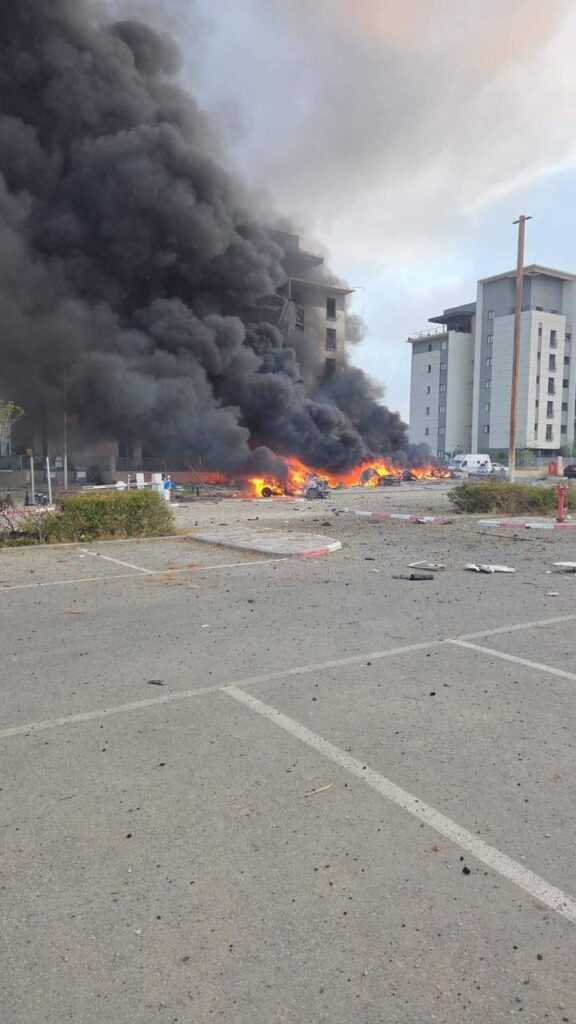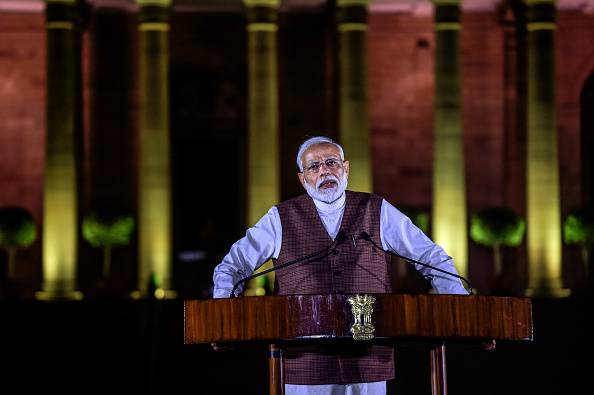Escalation Intensifies as Iranian Missile Reaches Deep Into Israel’s Heartland
In a dramatic escalation of the Middle East conflict, Iran has fired a missile targeting the Israeli city of Be’er Sheva, a major civilian and strategic hub in southern Israel. As sirens wailed across the region, residents rushed to bomb shelters, bracing for impact. The strike, believed to be retaliation for Israel’s recent aerial assault on Iranian military infrastructure, marks one of the most direct and dangerous escalations in recent years.
☄️#BREAKING: NOW CITY OF Beersheba hit HARD!
— Galaxy News United(GNU) (@GalaxyNewsUnit) June 20, 2025
Israel just fended off another Missile launch by Iran. pic.twitter.com/IuhIL9hidq
Be’er Sheva, often dubbed the capital of the Negev, is home to critical civilian and defense infrastructure, including Ben-Gurion University and advanced military command centers. While no immediate casualties have been confirmed, the psychological and strategic impact of the attack has sent shockwaves across Israel and the international community.
Iran’s Long-Range Strike: A Strategic Message to Israel and the West
The Iranian missile strike on Be’er Sheva is more than a random act of retaliation—it is a calculated geopolitical signal. By targeting a city well beyond border regions like the Golan Heights or northern Israel, Iran has demonstrated its long-range precision capabilities. This attack showcases Tehran’s readiness to escalate beyond its proxy warfare model.
According to initial defense reports, the missile penetrated Israeli airspace despite the Iron Dome defense system, which likely intercepted other simultaneous projectiles. The sirens activated across Be’er Sheva, Dimona, and surrounding towns indicate a broader regional threat, hinting that the strike could be part of a multi-pronged attack strategy.
Defense analysts believe the timing is significant. Just days ago, Israel launched over 60 fighter jets in a historic strike targeting Iran’s nuclear and missile facilities near Tehran. That preemptive operation destroyed several weapons factories, R&D centers, and military storage sites, severely crippling Iran’s offensive capabilities. Tehran’s decision to hit Be’er Sheva appears to be a tit-for-tat escalation, aimed at sending a bold message: Iran won’t remain passive.
Early this morning, an Iranian missile struck a residential area in Be’er Sheva, lightly injuring several people.
— Hen Mazzig (@HenMazzig) June 20, 2025
The missile, carrying 300 kg of explosives, was not intercepted and caused significant damage and fires. pic.twitter.com/vCLgN3MTJR
However, this strike also risks backfiring. By openly targeting civilian-populated areas, Iran may trigger global condemnation and give Israel justification for widening its military campaign. The United States and the United Kingdom, already aligned with Israel in opposing Iranian nuclear ambitions, may now feel compelled to increase pressure on Tehran, diplomatically or militarily.
Israel Prepares for Next Phase: National Security Tightens Amid Missile Threat
Following the Be’er Sheva missile strike, the Israeli Security Cabinet is expected to convene in an emergency session to deliberate a measured yet firm response. Prime Minister Benjamin Netanyahu has consistently stated that Israel will not tolerate attacks on its civilian population and has vowed to use “overwhelming force” if provoked again.
Israeli Home Front Command has issued enhanced civil defense protocols, urging citizens in the southern region to stay close to bomb shelters and follow emergency alerts. Mobile notifications and sirens were triggered within seconds, signaling the nation’s high readiness posture.
Moreover, military experts warn that Iran may not act alone. There’s growing concern that Hezbollah in Lebanon or the Houthis in Yemen may launch coordinated follow-up attacks in solidarity with Tehran. The possibility of a multi-front war is now being openly discussed in Israeli media, with analysts calling for heightened intelligence surveillance across all borders.
Public sentiment in Israel is a mix of resilience and fear. The memory of previous conflicts like Operation Protective Edge is still fresh. However, this time the adversary is not just a non-state actor—it’s a nation-state with ballistic missile capability, openly launching from its own territory.
As for the international reaction, the United Nations has called for restraint, while U.S. and EU leaders are urging both sides to avoid triggering a full-scale war. But on the ground, the situation remains volatile. The countdown to the next move has already begun.





















